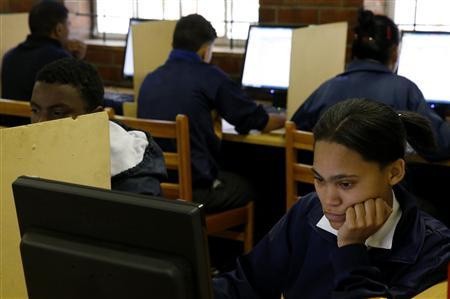Latino Courses in Schools in Connecticut will be a Requirement for Graduation

Students of color are finding it difficult to graduate. African-American males and Hispanic males have the lowest number of students who persevere to finish their studies.
School districts in Waterbury in the state of Connecticut in the United States of America are going to execute a law passed this year which requires them to offer courses that focus on Latino and Puerto Rican and African-American studies.
Waterbury is ahead of the other districts in the state because the city already offers similar courses that focus on the fields of Latino and Puerto Rican and African-American studies.
The passed law requires the state's Board of Education to evaluate and approve a model curriculum created by the State Educational Resource Center for the state's districts to follow in the first month of 2021.
The law is requiring the different districts in the state to ready African-American and Latino courses in school to be offered by the school year 2022 to 2023. This requires the schools from the different districts to offer courses in the fields of Latino and Puerto Rican and African-American studies the following year after the school year 2022 to 2023.
The course will be a requirement for students to graduate. The African-American and Latino courses in school will be equivalent to 1 credit.
According to Rob Sampson, the state's senator, R-Wolcott had stated that the law which had made it through the General Assembly and already affixes a signature of Governor Ned Lamont was a compromise in its entirety.
Samson also added in his statement that he would have voted not in favor of the law if it was a requirement for students to get their college diploma through African-American and Latino courses in school.
"You're telling teachers they don't know how to do their jobs," said State Senator Sampson.
Senator Sampson expressed his doubts on the increase of its popularity in less diversified communities like in Wolcott.
"Of course it's going to get more play in urban districts," said Sampson regarding his predictions for the newly passed law.
Sampson also said in his statement that he believed that his previous learning from his high school years was enough to let him have a deeper understanding of the meaning of slavery, racism, race, and the civil rights movement.
Sampson studied in the public schools of Meriden. He grew up in Meriden and graduated high school in Maloney High School.
"Black children are taught that their origin is to be dragged away. When they're taught that they're diminished . . . how do you expect them to achieve greatness?" said Warren Leach, a member of Ungroup Society.
Warren Leach said that there will be conflicts when just 2 facets of the history of Blacks will be discussed in schools and he believes that it will greatly affect black students.
The Ungroup Society if a group that tries to resolve some issues of the community in times when politics can make any effective solutions. It gave classes at the Waterbury Opportunities Industrialization Center and the Wow NRZ Community Learning Center. They had given lessons on financial management, entrepreneurship for the youth, and the African-American history for children aged 12 and above.
Subscribe to Latin Post!
Sign up for our free newsletter for the Latest coverage!
© 2026 Latin Post. All rights reserved. Do not reproduce without permission.














